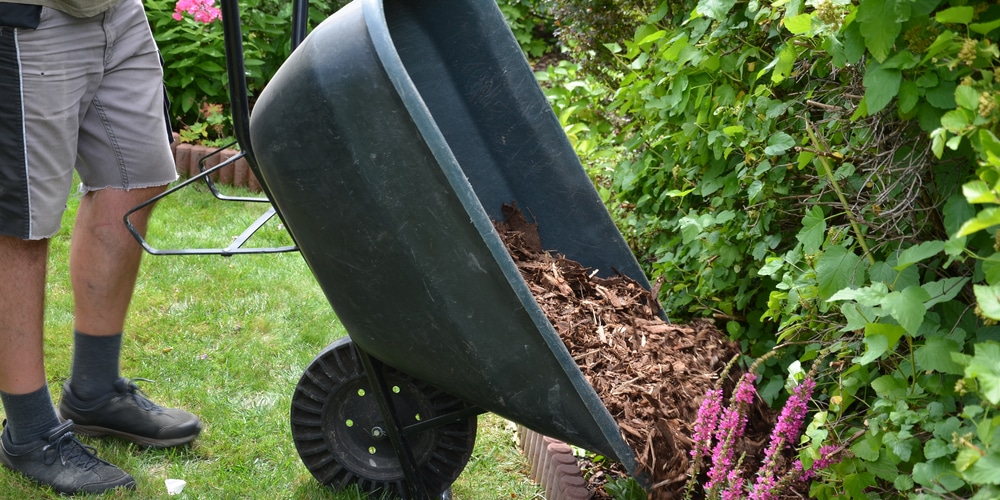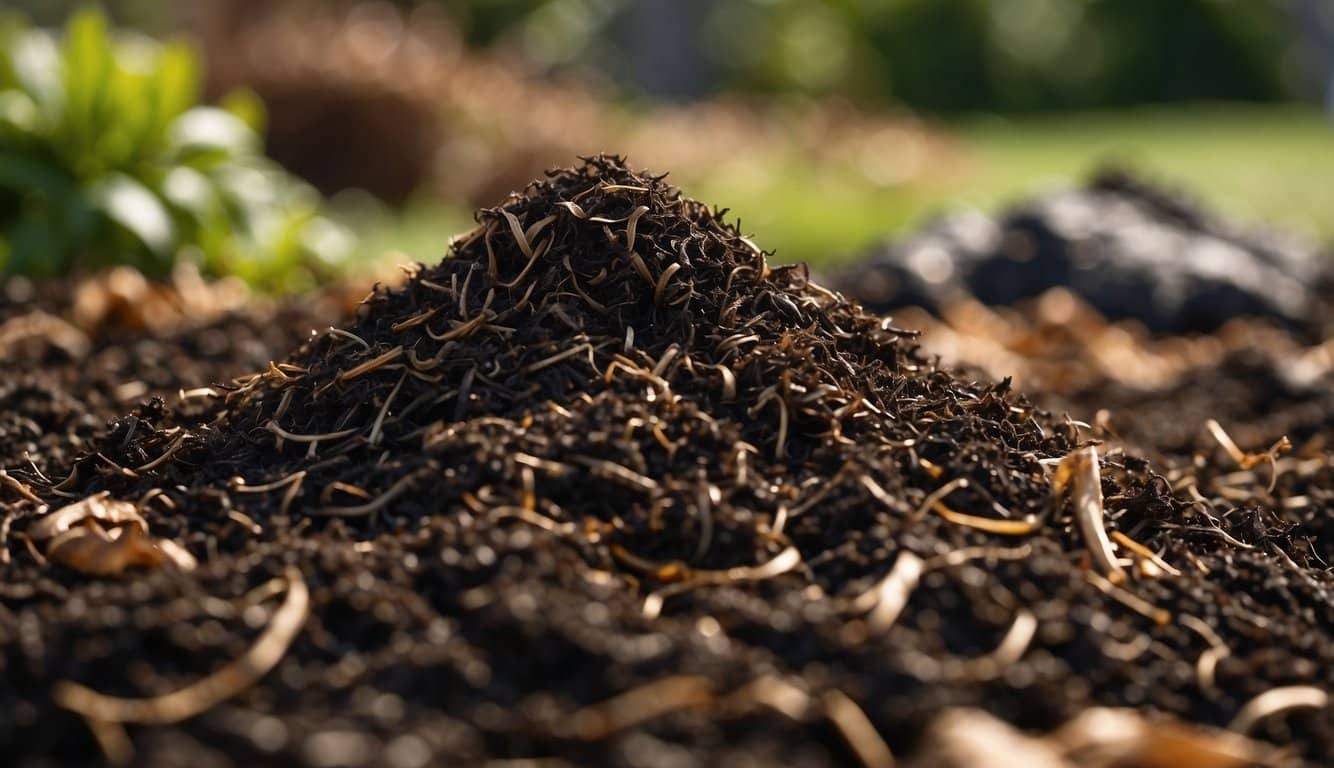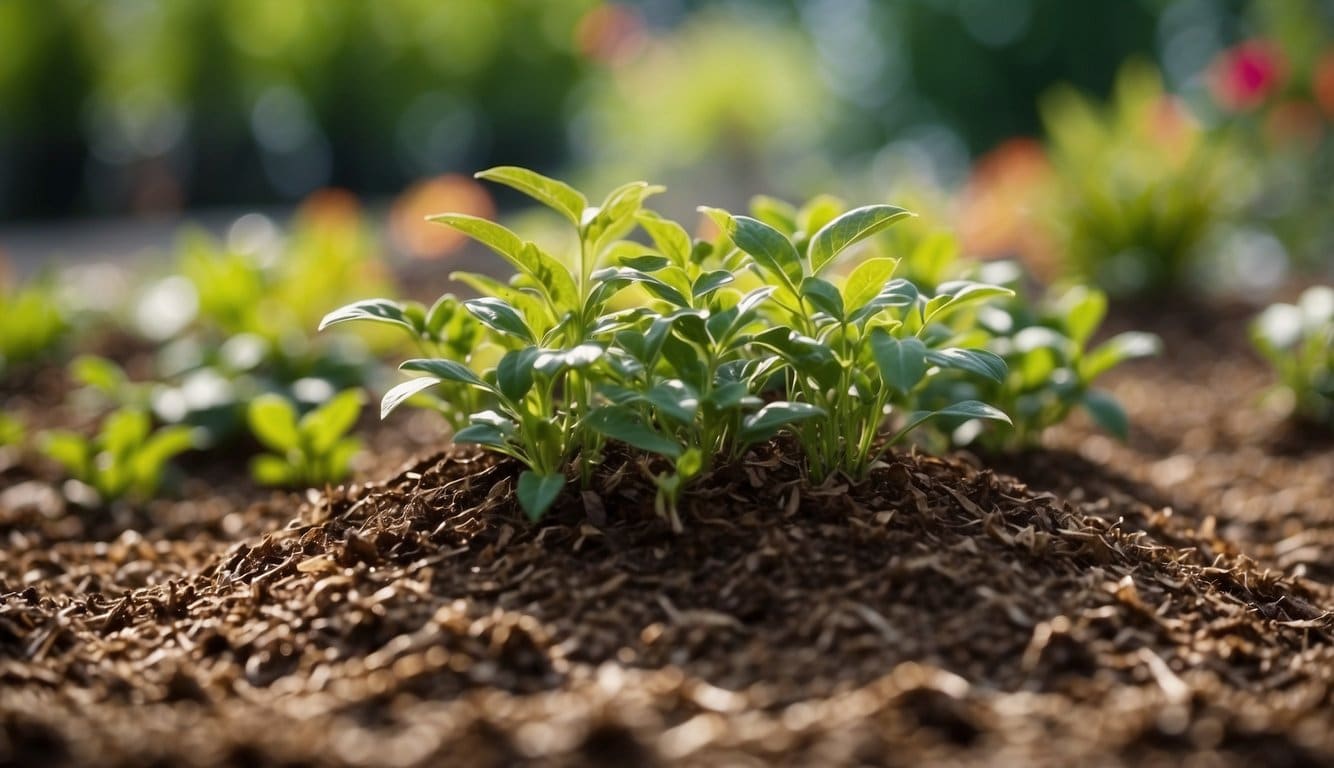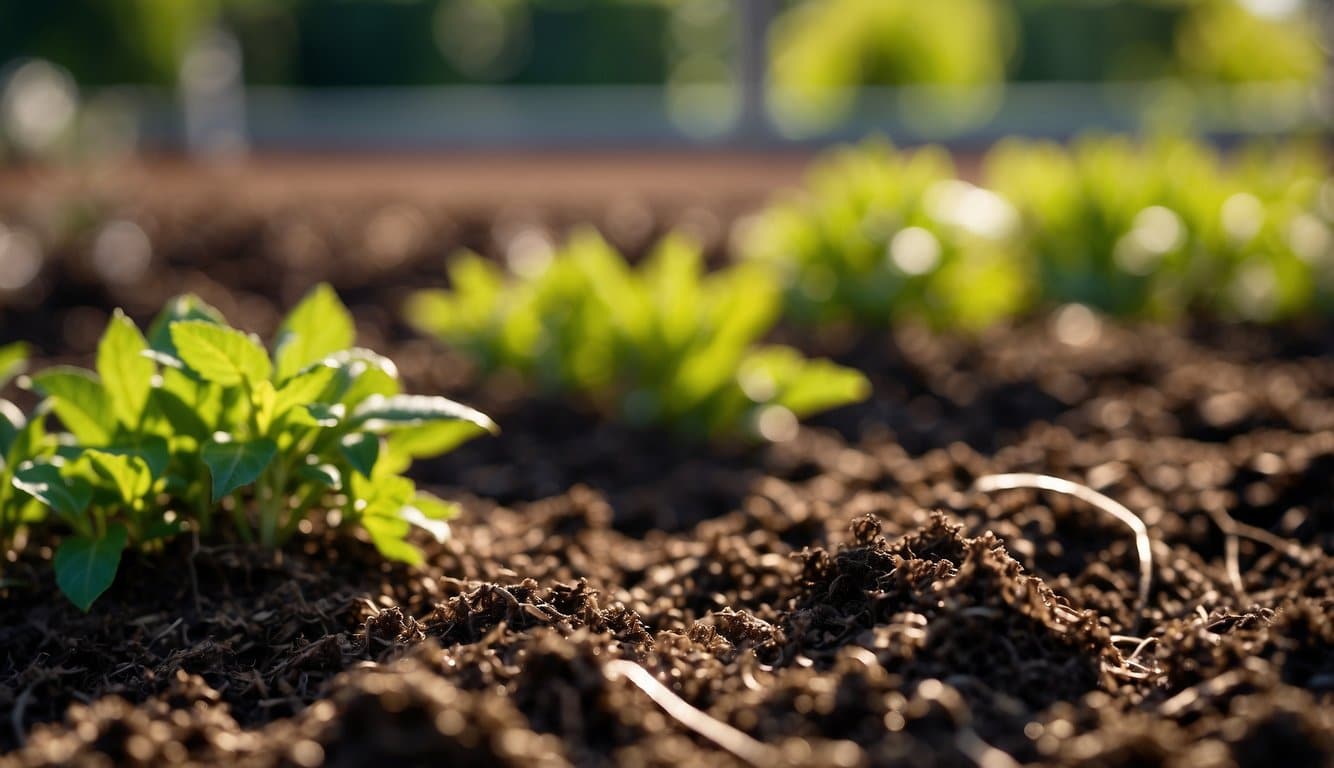Mulch plays a vital role in gardening and landscaping, serving multiple purposes such as weed suppression, moisture retention, and even acting as a decorative feature.
It is commonly composed of organic materials like leaves, straw, bark, or wood chips.
The composition of mulch varies greatly depending on its
Composition of Mulch
Mulch is designed to improve the health and stability of soil in garden beds, but its ingredients vary based on type.
Two primary categories define the composition of mulch: organic and inorganic materials, each serving specific purposes in landscaping.
Organic Mulch Materials
Organic mulches are derived from natural, once-living materials that decompose over time, enriching the soil with nutrients.
Common options include
- Straw and Hay: They are lightweight and improve soil moisture retention.
- Wood Chips or Shavings: Available in various sizes, adding structure to the soil.
- Bark: Hardwood or softwood types are prevalent, known for their durability.
- Composted Manure: Possibly included to enhance fertility, manure enriches the soil as it breaks down.
- Leaves and Grass Clippings: Excellent for recycling garden waste, they foster beneficial organisms.
Inorganic Mulch Materials
In contrast, inorganic mulches are non-living materials that don’t decompose, creating a long-lasting layer. These include:
- Stones and Gravel: Aesthetic and effective for drainage and heat retention.
- Landscape Fabric: A barrier against weeds, allowing for water and air penetration.
- Rubber Mulch: Made from recycled tires, an eco-friendly option for shock absorption.
Organic mulches often do contain manure, as it is a nutrient-rich substance that can support plant growth. However, not all varieties do, and a gardener should check the specific composition of the mulch they plan to use.
Manure and Mulch
Incorporating manure into mulch can enhance soil fertility and plant health. This section examines its role and the types used in mulching practices.
Role of Manure in Mulching
Manure serves as a nutrient-rich component that can be integrated into mulch to benefit plant growth.
When applied to garden beds, manure-enriched mulch gradually releases nutrients into the soil, improving its structure and fertility.
This natural addition can lead to more robust plant development and increased resistance to pests and diseases.
The benefits are specific to the nutrient content of the manure used, which varies based on the source animal and its diet.
Types of Manure in Mulch
The types of manure incorporated into mulch commonly stem from various farm animals, with each offering a unique nutrient profile:
- Cow Manure: Rich in nitrogen and organic matter, it is often well-composted to support plant growth without burning roots.
- Horse Manure: Contains higher levels of organic material and is usually mixed with bedding, like straw, which aids in aeration.
- Chicken Manure: Highly concentrated with nitrogen, phosphorus, and potassium, and should be well-composted to prevent damage to plants due to its strength.
- Sheep and Goat Manure: These are dryer and richer in nutrients compared to cow manure, often releasing nutrients at a slower rate, which can be beneficial for long-term growth.
Benefits of Mulch
Mulch offers a multitude of advantages for gardens and landscapes. Central to its benefits are soil improvement and plant health, each playing a critical role in a thriving garden.
Soil Improvement
Mulch enriches the soil in several ways. When organic mulch breaks down, it adds essential nutrients back into the earth, promoting soil fertility. It also helps to:
- Maintain soil moisture by reducing evaporation
- Regulate soil temperature, keeping it warmer in the winter and cooler in the summer
- Prevent soil erosion from wind and water
Plant Health
For plants, mulch acts as a protective barrier. Its presence leads to healthier growth by:
- Suppressing weed growth which competes with plants for nutrients and water
- Reducing the likelihood of soil-borne diseases by preventing soil splash
- Encouraging beneficial microbial activity that supports robust plant roots
| Type of Mulch | Color Options | Primary Uses |
|---|---|---|
| Organic Mulch | ||
| – Shredded Bark | Natural brown, varies with bark type | Insulation, moisture retention, weed control |
| – Wood Chips | Natural brown, can be dyed red, black, blue | Pathways, garden beds, moisture retention, weed control |
| – Straw | Natural golden | Vegetable gardens, erosion control, insulation |
| – Pine Needles | Natural brown to reddish-brown | Acid-loving plants, slopes, moisture retention |
| Inorganic Mulch | ||
| – Rubber Mulch | Red, brown, blue, green, more | Playgrounds, landscaping, long-lasting weed control |
| – Rock/Gravel | Natural stone colors, varies | Drainage, heat-loving plants, low-maintenance areas |
| – Landscape Fabric | Black, grey | Weed barrier under other mulch, garden and landscape beds |
Considerations When Using Manure-Based Mulch
When utilizing manure-based mulch, gardeners should be aware of several key factors to ensure the health of their plants and the effectiveness of their mulching practices.
- Composition: Not all manure-based mulches are created equal. They should confirm that the mulch is well-composted to avoid the introduction of pathogens and weed seeds into their garden.
- Odor: A well-composted manure mulch should have a pleasant, earthy smell. If the mulch emits a strong odor akin to feces or ammonia, this may indicate poor composting and potential harm to plant roots.
In practice, applying manure-based mulch correctly is vital. Here’s a quick guide:
- Thickness: Mulch should be spread in a layer approximately 2-3 inches thick to effectively preserve soil moisture and temperature, as well as suppress weed growth.
- Proximity: To avoid stem rot and other diseases, gardeners should leave a small buffer zone between the mulch and the base of the plants.
Finally, cultural and environmental considerations come into play:
- Soil Testing: Before applying manure-based mulch, it’s advisable to test the soil to understand its current nutrient levels.
- Regulations: Gardeners should stay informed about local regulations, particularly in organic gardening, as the use of manure can be subject to stringent rules.
Frequently Asked Questions
Inquiring minds often have questions about the composition of mulch and its implications for gardening. This section addresses common inquiries related to mulch and its potential inclusion of manure.
What are the common materials used to make mulch?
Mulch can be made from a variety of materials, including straw, wood chips, bark, leaves, and compost. These materials can serve different purposes depending on the needs of the garden or landscape.
Can mulch contain organic materials like manure?
Yes, mulch can contain organic materials such as manure. Manure is often used in mulch for its nutrient-rich properties that can enhance soil fertility and plant growth.
How can you tell if mulch is treated with manure?
One can typically identify manure-treated mulch by its distinct odor or by information provided on the packaging. Some mulches, certified by industry standards, explicitly state their contents and whether they contain manure.
What is the purpose of mulching in agricultural practices?
Mulching is used in agriculture to protect soil, retain moisture, minimize weed growth, and as a means to enrich soil with organic matter, which can improve plant health and yield.
How can one effectively reduce the odor from mulch in their garden?
To reduce odor, gardeners can select mulch that is properly composted, as the composting process reduces the strong scents associated with organic materials like manure. Additionally, allowing mulch to aerate before application can help dissipate odors.
Why might mulch emit an odor similar to manure?
Mulch may emit an odor similar to manure if it includes organic materials that are decomposing. As these materials break down, they can release a pungent smell until fully composted or integrated into the soil.


